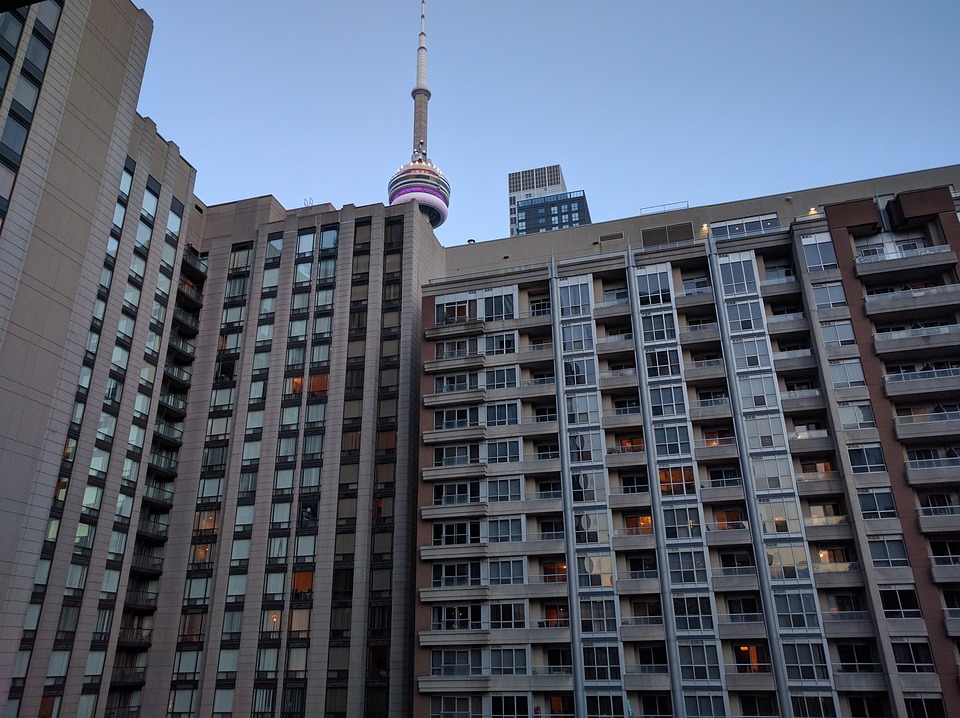In Ontario, a landlord can evict a tenant only for the reasons allowed by the Residential Tenancies Act, 2006, and the Rental Fairness Act, 2017. Tenants can be evicted for either they (the tenant’s guest or someone else who lives in the rental unit) do what they shouldn’t do, or they don’t do what they should.
- the day that rent payments are due
- the way the rent should be delivered to the landlord
- the acceptable methods for paying the rent
There are 10 main reasons to end a tenancy earlier by a landlord: 7 of them connected with the tenant’s conduct; and 3 other reasons for eviction that are not related to what the tenant has done or not done. These 10 reasons are:
- non-payment of rent or not paying the rent in full
- persistently paying the rent late
- causing damage to the rental property
- illegal activity
- affecting the safety of others
- disturbing the enjoyment of other tenants or the landlord
- allowing too many people to live in the rental unit (“overcrowding”)
- “landlord’s own use” (the landlord wants the rental unit for their own use or for the use of an immediate family member or a caregiver)
- selling the house (the landlord has agreed to sell the property and the purchaser wants all or part of the property for their own use or for the use of an immediate family member or a caregiver)
- demolition, conversion or repairs (the landlord plans major renovations that require a building permit and vacant possession)
In most situations, before a landlord can apply to the Landlord and Tenant Board to evict the tenant, they must first give the tenant a notice of termination that tells the tenant the reason the landlord wants to evict them.
The landlord must use the proper forms that are available from Ontario Landlord and Tenant Board. In some cases, the landlord must also wait a certain number of days to provide the tenant with an opportunity to correct the problem. The exact number of days which the tenant has to fix the problem should also be included in the notice.
If the tenant does not move out after receiving the notice, the landlord can ask the Landlord and Tenant Board to end the tenancy by filing an application. The Board will decide if the tenancy should end after holding a hearing. Both the landlord and the tenant can come to the hearing and explain their side to a member of the Board.
The Landlord and Tenant Board will make a decision pursuant to the provisions of the Residential Tenancies Act. If the Board does decide to make an Order for eviction, it will tell the tenant when they must leave the unit. If the tenant does not move out, then the landlord can file the Board’s Order with the Court Enforcement Office (also called the Sheriff). It’s important to keep in mind that only the Court Enforcement Office can evict a tenant: the landlord does not have the right to personally remove tenants or hire someone to do so.
It is very important that rent payments are made on time and in full. Please pay attention to the following:
- The rent is late if the full amount is not paid by midnight on the day it is due.
- A landlord does not have to accept partial payment of rent.
- If partial payment is accepted, the landlord can still take steps to collect the rest of the rent that is owing, including serving a notice that asks the tenant to pay the rent they owe, or move out of the unit.
A tenant should not withhold any part of the rent, even if the tenant feels that maintenance is poor or a necessary repair has not been done. A tenant could be evicted, if they withhold rent without getting approval from the Board.
If a tenant does not pay rent on the date that it is due, the landlord can give the tenant a Notice to End a Tenancy Early for Non-payment of Rent the day after the rent was due. If a tenant pays rent monthly, this notice gives the tenant 14 days to pay the rent due or to move out. If the rent is not paid, and the tenant does not move, the landlord can apply to the Landlord and Tenant Board for an order that:
- requires the tenant to pay the rent that is owing, and
- evicts the tenant if they do not make the entire payment by a deadline
If a tenant is often late with the rent, the landlord can give a Notice to Terminate a Tenancy at the End of Term. Daily or weekly tenants must be given notice 28 days before the end of their lease or rental period. In all other cases, the tenant must be given notice 60 days before the end of their lease or rental period.
The landlord can apply to the Landlord and Tenant Board for an order evicting the tenant right after giving the tenant the Notice to Terminate a Tenancy at the End of Term. A hearing will be held and both sides will have a chance to give their side of the story.
A landlord may give a tenant notice of termination of the tenancy if the tenant, another occupant of the rental unit or a person whom the tenant permits in the residential complex willfully or negligently causes undue damage to the rental unit or the residential complex.
A notice of termination under this section shall,
- provide a termination date not earlier than the 20th day after the notice is given;
- require the tenant, within seven days, to repair the damaged property or pay to the landlord the reasonable costs of repairing the damaged property, or to replace the damaged property or pay to the landlord the reasonable costs of replacing the damaged property, if it is not reasonable to repair the damaged property.
The notice of termination under this section is void if the tenant, within seven days after receiving the notice, complies with the requirement or makes arrangements satisfactory to the landlord to comply with that requirement.
A landlord may give a tenant notice of termination of the tenancy if the tenant or another occupant of the rental unit commits an illegal act or carries on an illegal trade, business or occupation or permits a person to do so in the rental unit or the residential complex. A notice of termination under this section shall set out the grounds for termination and shall provide a termination date not earlier than the 10th day after the notice is given, in the case of a notice grounded on an illegal act, trade, business or occupation involving.
A landlord may give a tenant notice of termination of the tenancy if the conduct of the tenant, another occupant of the rental unit or a person permitted in the residential complex by the tenant is such that it substantially interferes with the reasonable enjoyment of the residential complex for all usual purposes by the landlord or another tenant or substantially interferes with another lawful right, privilege or interest of the landlord or another tenant. The notice of termination shall provide a termination date not earlier than the 20th day after the notice is given. The notice is void if the tenant, within seven days after receiving the notice, stops the conduct or activity or corrects the omission.
A landlord may give a tenant notice of termination of the tenancy if the number of persons occupying the rental unit on a continuing basis results in a contravention of health, safety or housing standards required by law. The notice of termination shall provide a termination date not earlier than the 20th day after the notice is given. The notice requires the tenant, within seven days, to reduce the number of persons occupying the rental unit to comply with health, safety or housing standards required by law. The notice of termination under this section is void if the tenant, within seven days after receiving the notice, sufficiently reduces the number of persons occupying the rental unit.
Impairing the safety of any person means a tenant, another occupant of the unit, or a guest, did something which affected the safety of another person in the property. An example might be causing a fire. At least 10 day notice of termination in writing must be given by the landlord. The notice can be given at any time. Once the notice has been served, the landlord can apply immediately to the Landlord and Tenant Board to evict the tenants, or wait to see if they moves out by the termination date.
A tenant can be evicted if a landlord requires the unit for:
- their own use
- the use of an immediate family member
- the use of a person who will provide care services to the landlord or a member of the landlord’s immediate family, who is living in the same building or complex
Starting September 1, 2017, the landlord shall compensate a tenant in an amount equal to one month’s rent or offer the tenant another rental unit acceptable to the tenant if the landlord gives the tenant a notice of termination of the tenancy. Only individual landlords, not corporations, can give notice of termination for this reason. Once the landlord gives the tenant a notice terminating the tenancy for one of these reasons, they can apply to the Board for an order evicting the tenant.
A tenant can be evicted if the landlord sells the house, but only if the building has 1-3 units and the person buying the building needs the rental unit for:
- their own use
- the use of an immediate family member
- the use of a person who will provide care services to the landlord or a member of the landlord’s immediate family, who is living in the same building or complex
Once the landlord gives the tenant a notice terminating the tenancy for one of these reasons, they can apply to the Board for an order evicting the tenant.
A landlord may give notice of termination of a tenancy if the landlord requires possession of the rental unit in order to:
- demolish it
- convert it to use for a purpose other than residential premises
- do repairs or renovations to it that are so extensive that they require a building permit and vacant possession of the rental unit.
The date for termination specified in the notice shall be at least 120 days after the notice is given and shall be the day a period of the tenancy ends or, where the tenancy is for a fixed term, the end of the term. A tenant who receives notice of termination may, at any time before the date specified in the notice, terminate the tenancy, effective on a specified date earlier than the date set out in the landlord’s notice.
A landlord shall compensate a tenant in an amount equal to three months rent or offer the tenant another rental unit acceptable to the tenant if:
- the tenant receives notice of termination of the tenancy for the purposes of demolition or conversion to non-residential use
- the residential complex in which the rental unit is located contains at least five residential units
Landlord cannot lock tenant out of the rental unit
A tenant has the right to stay in the unit until the Landlord and Tenant Board issues an eviction order. It is an offence for a landlord to illegally lock a tenant out of their rental unit or the building. If a landlord is convicted in Provincial Court under the Provincial Offences Act, they could be fined up to $25,000 if the landlord is an individual, or $100,000, if the landlord is a corporation.
The Landlord and Tenant Board contacts
For more information, or to obtain copies of forms and publications:
- https://tribunalsontario.ca/ltb/
- 416-645-8080 or toll-free at 1-888-332-3234
- You can visit your local Landlord and Tenant Board office. A list of Board office locations can be found on the website.


















